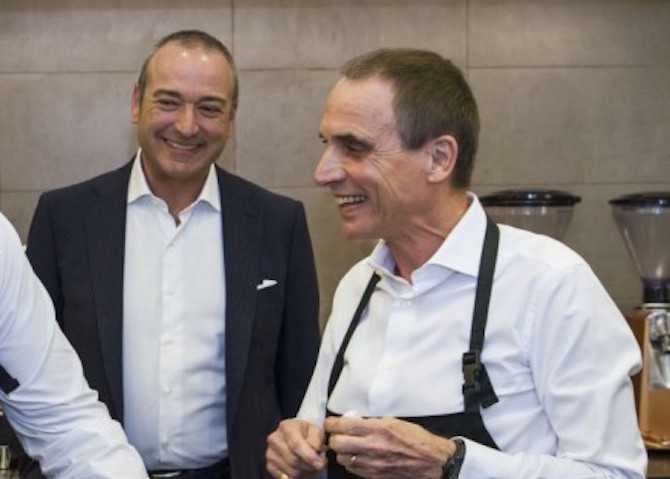“The falling trend in prices on the exchange (ICE) is just a game of financial houses that speculate on all the raw materials.”
“The physical, real market has been far removed from these games for some time,” Enrico Venuti, president of Sandalj Trading Co (on the left in the picture with Edy Bieker in the cup tasting laboratory of the company), said last week in an interview with Reuters.
Trieste-based Sandalj sources high-quality coffees from origins such as Brazil and Colombia for the espresso market.
“The exchanges benefit just speculators and big industry, and not the market for special products,” Venuti said late on Thursday.
“I ask myself, how is it possible that all the estimates for production in 2016 point to a strong drop while consumption is rising sharply, and yet prices on the bourses fall? It’s purely speculation,” he added.
“So I think the trend in prices will soon be reversed and that we will see the market rise again.”
Venuti added: “If you want to buy any excellent coffee from Brazil, Colombia, Central America or Ethiopia, you pay high premiums compared to 2014.”
Exports of Italian coffee blends for espresso were rising strongly, Venuti said.
He cited figures from statistics agency Istat showing that exports of roasted coffee from Italy exceeded 2.9 million 60-kg bags in 2013, the latest year for which data was available, up 10.23 percent from 2012.
The most important markets have been the European Union, accounting for some 60 percent, while the remaining 40 percent has been exported to the United States, Australia, Russia and Canada, he said.
“The most significant increases have been to China, South Korea, Israel and Japan,” Venuti concluded.


















